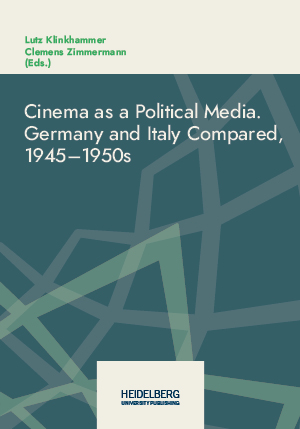Zitationsvorschlag
Identifier (Buch)
Veröffentlicht
Popular and Catholic Cinema in Italy, 1944–1954. What Kind of Lessons about the Past Did the “Morally Sane” and Educating Film Communicate to Italian Audiences?
Looking from the 1970s backwards, from the years of the Anti-Fascist consensus in large parts of Italian society, the famous neorealist Italian films overlay completely the vast popular film production of the first decade after World War II. However, during the years between 1948 and 1955, neorealism had a difficult standing in the predominant Italian Catholic-conservative political culture, and the Resistance against “nazifascism” vanished more and more from the screens. Christian democratic leaders and Vatican hierarchy aimed to moralize society by the most popular media of that decade: cinema. State administration tried to promote “morally good” films by using financial grants to lead Italian productions and co-productions towards an auspicable Catholic film, but by applying state censorship to undesirable topics as well. Vatican authorities tried to influence Catholic audiences by communicating film recommendations and by creating a system of Catholic oriented cinemas: commercial ones and especially parish cinemas. For economic and audience reasons the parish cinema system probably “failed” to moralize, at least following the standards given by the Vatican authorities, but popular Catholic cinema, as I suggest, worked quite well politically in organizing Catholic society. It worked still better in terms of forgetting about the Fascist past and believing in a selfexculpatory master narrative created by Italian post-war society.







